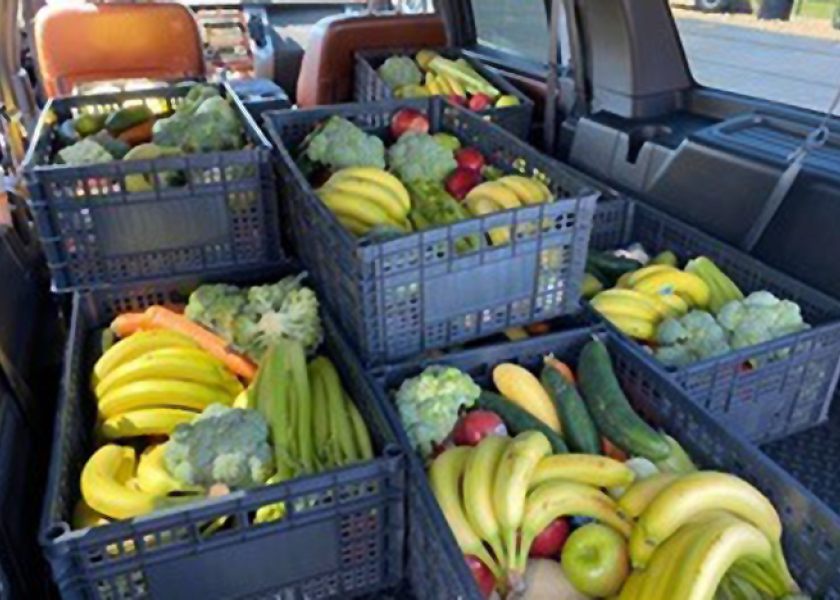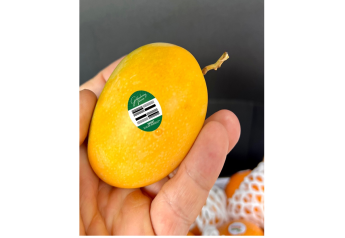Foodservice sector scrambles for sales, relief

For more coronavirus coverage, check out our landing page on the topic here. To provide input on how the virus is affecting your business, take The Packer's survey.
Wholesalers and foodservice distributors are selling to consumers as they scramble to replace millions in lost sales to restaurants because of COVID-19 restrictions in place since mid-March.
Pro*Act distributors and their restaurant customers are selling boxes containing a week’s worth of produce directly to consumers. Customers can order pre-packed boxes of fruit or vegetables that will feed a family of four for a week and can receive the boxes at their vehicle outside restaurants and distributor facilities.
“This has been an unprecedented time of uncertainty across the country,” Pro*Act chief operating officer Brian Kane said in the release. “We are bringing a degree of certainty in keeping our communities nourished and safe; these produce boxes are meeting that need in a real, tangible way.”
Pro*Act distributors also have donated produce to hospital employees, food banks, and under-served communities.
Brent Erenwert, CEO of Houston-based Brothers Produce, said his company created a produce box business model that includes door-to-door deliveries and co-ops such as neighborhoods, churches, teacher groups and others.
“At this time my biggest concern is to keep the supply chain moving, my inventory turning, and most importantly the jobs at my place saved,” he said. “I am not here to ever compete or take away from the grocery stores as they are all amazing partners for me, but right now is when we have to all think outside the box.”
Anthony Totta, founder of the consulting firm FreshXperts, said with fear of crowds at retail because of the virus, it is an “opportune time” to sell boxes full of mixed vegetables and fruit directly to consumers.
However, businesses that were already established in the produce box market, such as community-supported agriculture groups, are likely in a better spot than new market entrants like wholesalers.
“My expectation is that things will calm down before (wholesalers) really get good, strong traction in it,” he said. “I wouldn’t recommend people get in unless they’re going to get into it for the long haul.”
Totta said that foodservice stands to bounce back with a vengeance when the crisis eases.
“After all this social isolation and eating at home (is over), when the gate opens, the foodservice industry is going to be jam-packed and there’s going to be people eating out all over the place for both the social interaction and because they’re dying to get out,” he said. “I think when the weather is good and things start to subside, the pendulum is going to swing the other way and the retailers are going to be hurt.”
Totta said some retail accounts overreacted to the crush of business at the beginning of the lockdown in mid-March.
“(Retailers) started putting out lots of purchase orders and over the last few days and (now) they’ve been canceling purchase orders because they’re their inventories shot up,” Totta said April 2.
“I would say consumers are stocked up; some of the panic (buying) is subsided I think, and it’s left some producers in a hurting situation.
Other sources said some retailers have also narrowed the list of produce items they carry, which has left growers of less mainstream crops with fewer options.
He said some Florida growers may have to plow their zucchini fields because the market is only about $4 per carton in early April.
“I think what’s going to probably happen there is they’re going to plow them up, and then there’s going to be a shortage.”
Relief sought
Distributors are seeking relief through other channels. On April 1, a coalition of foodservice distributors submitted a joint letter to the Trump administration and Congress seeking financial assistance.
U.S. Foods, Performance Food Group, Ben E. Keith Co., Gordon Food Service, Shamrock Foods Co., Stanz Foodservice and other companies signed the letter according to a news release.
The letter to government officials said Title IV of the Coronavirus Aid, Relief, and Economic Security Act (CARES Act) can provide a key source of financial support to help sustain the food distribution network and avoid shortages during this critical time.
“As food demand moves from restaurants to grocery stores, the U.S. will need our full distribution network to avoid shortages during this critical time,” the letter said. “To that end, we ask you to urge the Treasury Department to establish a priority for loan applications from the foodservice distribution industry.”
Related articles
Wholesalers, others in supply chain changing business models
NYC Hunts Point Market takes precautions, keeps feeding 8.5 million







